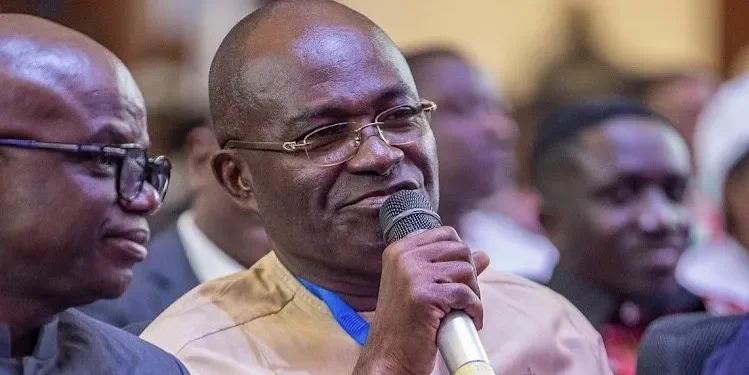Despite delays and setbacks, Member States of the Economic Community of West African States (ECOWAS) are still keen on introducing the common currency, Eco.
The President of the ECOWAS Commission, Jean Claude Kassi Brou, at the just ended ordinary summit of ECOWAS in Accra hinted that the Eco will take full implementation in 2027. As a result, he urged member countries to work towards meeting the 11 convergence criteria for the introduction of the common currency. Some of which include a budget deficit of no more than 4%, at most an inflation rate of 5% and debt-GDP-ratio less than 70%.
According to Dr. Brou, ECOWAS has decided to revise the date for the full implementation of the common currency due to the outbreak of the pandemic.

“Due to the shock of the pandemic, the heads of state have decided to suspend the implementation of the convergence pact in 2020-2021. We have a new road map and a new convergence pact that will cover the period between 2022 and 2026, and 2027 being the launch of the Eco”.
The devastating effects of the pandemic on member states will even make it very difficult for the ECOWAS to introduce the ECO. This is because the pandemic has reversed the progress made by most of the member states. Moreover, it is very much in doubt if ECOWAS will be able to meet the new deadline of 2027.
Ratification of Agreement
Also, the fact that only 6 out of the 16 member states have rectified the agreement, leaves more room for doubt for the full implementation of the Eco in 2027. A single ECOWAS currency would be a major and ambitious undertaking, with many potential benefits, especially during the pandemic.
However, leaders must commit to building resilient policy and institutional frameworks that can create positive benefit-risk trade-offs. This will help boost the economic well-being and prosperity of ECOWAS countries.
An ECOWAS currency union could improve trade and investment flows in the region. The commencement of trade under the AfCFTA is key in this regard. Moreover, the Common Currency will bring added discipline to the macroeconomic and structural policies of member countries. Meanwhile, it will also enhance stability against external shocks.
Furthermore, a currency union with a strong central bank could have helped the region better weather the damaging economic effects of the COVID-19. It could also serve as an anchor for inflation expectations within the area. Additionally, it will serve as a catalyst for beneficial labor and product market reforms. In addition, a currency union can exert external discipline on fiscal policies.
Some Challenges
Despite the benefits, there are several challenges that ECOWAS must overcome to benefit from the Eco.
First and foremost, ECOWAS leaders must consider carefully the significant costs, operational issues, and transitional risks of a currency union. There are different production and economic structures in member states. This means that the loss of an independent currency and monetary policy puts a significant burden on other policies in each country.
Meanwhile, Nigeria, the largest economy in West Africa, currently operates a managed float for its currency. Also, eight others including top cocoa producer Ivory Coast, use the France-backed CFA, pegged to the euro. This further poses a challenge to the common currency.
READ ALSO: Gov’t spends GH¢65.2 m on SDG 12 in 2020






















